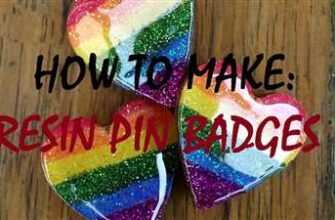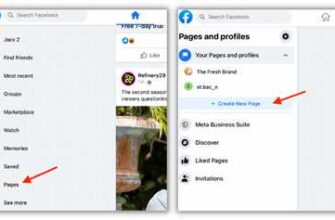
Writing a blog post can seem like a daunting task, but with a few key guidelines and some practice, you can become a successful blogger. Blogs are a valuable tool for businesses, academic publications, and small websites to demonstrate their expertise and promote their products or services. In this article, we will discuss how to write blog posts that not only have a high performance in terms of traffic but also effectively communicate your thoughts and ideas.
One of the most important aspects of writing an effective blog post is to know your audience and the purpose of your article. Before you start writing, take some time to research the topic and gather information from reliable sources. This will help you build a solid foundation for your post and ensure that your content is accurate and up-to-date. It is also important to choose a keyword or key phrase that is relevant to your topic and can attract potential readers.
When writing a blog post, it is essential to have a clear structure and present your thoughts in a logical and organized manner. Start with a short introduction that grabs the reader’s attention and introduces the main topic. Use subheadings and bullet points to break up the text and make it easier to read. It is also important to use strong and impactful language to keep the reader engaged and interested in your content.
In addition to having a strong structure and clear writing style, it is important to always proofread and edit your blog posts before publishing them. Check for spelling and grammar errors, and make sure that your sentences are concise and coherent. Having well-written and error-free content will not only demonstrate your professionalism but also help you build credibility and trust with your readers.
In conclusion, writing a blog post can be a challenging task, but by following these guidelines and honing your writing skills, you can create valuable and engaging content. Remember to know your audience, choose the right keywords, and structure your posts in a clear and organized manner. Additionally, always proofread and edit your work to ensure that it is of high quality. With practice and dedication, you will be able to write blog posts that not only attract traffic but also effectively communicate your thoughts and ideas.
Writing an Academic Blog
Writing an academic blog is an effective way to promote your expertise and demonstrate your knowledge in a specific field. Blogs have become a popular medium for businesses and individuals to share their thoughts, ideas, and valuable information with others. In this article, we will discuss how to write an academic blog and provide some key takeaways to help you create a successful post.
When writing an academic blog, it is important to know your audience and choose topics that are timely and relevant. Consider what kind of information your target audience is looking for and how your knowledge and expertise can provide value to them. This will help you to generate traffic to your blog and establish yourself as an authority in your field.
Keywords play a crucial role in attracting traffic to your blog. Research and identify the keywords that are most relevant to your topic and incorporate them strategically throughout your blog post. However, be cautious not to overuse keywords, as search engines penalize keyword stuffing. Instead, focus on writing high-quality content that is informative and engaging.
Having a well-structured blog post is also important for both readers and search engines. Use headings, subheadings, and bullet points to organize your thoughts and make it easier for readers to skim through your content. Additionally, linking to reputable sources and citing them properly adds credibility to your blog post.
When writing an academic blog, it is always important to present your ideas in a clear and concise manner. Keep your paragraphs short and focused, and use precise language to convey your thoughts. Avoid jargon and technical terms unless necessary, and make sure to define them clearly for your readers.
Furthermore, building relationships with other bloggers and sharing your content on social media platforms can help increase the visibility of your blog. Collaborating with other experts in your field and guest posting on their blogs can also expand your reach and attract new readers.
In conclusion, writing an academic blog is an effective way to share your knowledge and promote your expertise. By following these guidelines and incorporating the key takeaways mentioned in this article, you can create a successful blog that attracts traffic and engages readers.
How to write a successful blog that also promotes your business
Writing a blog can be a great tool for promoting your business. There are many reasons why having a blog is beneficial. It allows you to showcase your expertise in a timely manner and demonstrate your knowledge in your field. By writing blog posts, businesses can present themselves as thought leaders and provide valuable insights to their audience.
When writing a blog post, it is important to keep in mind the audience you are trying to reach. Think about the keywords and topics that are relevant to your business and your target audience. By including these keywords in your blog posts, you can help improve your website’s search engine optimization (SEO) and drive more traffic to your site.
In addition to keyword optimization, there are some general guidelines to follow when writing a blog post. Make sure your post is well-structured and easy to read. Use short paragraphs and headings to break up the text and make it more digestible for the reader. Including images and multimedia can also enhance the overall experience for your audience.
One of the most important takeaways for businesses is to be authentic. Write in a way that reflects your brand and showcases your unique voice. By staying true to yourself and your business, you can create a more effective blog that resonates with your audience.
Another key element to consider is promoting your blog. There are many ways to do this, such as sharing your blog posts on social media or reaching out to other websites for guest blogging opportunities. By actively promoting your blog, you can increase your reach and attract more readers to your site.
In conclusion, writing a successful blog that promotes your business requires thought and effort. By following these guidelines and incorporating the right keywords and topics, businesses can learn how to write an effective blog that not only drives traffic but also showcases their expertise and promotes their brand.
| Key Takeaways: |
|---|
| – Writing blog posts can help businesses demonstrate their expertise and showcase themselves as thought leaders |
| – Including relevant keywords in your blog posts can improve your website’s SEO and drive more traffic |
| – Be authentic and write in a way that reflects your brand and unique voice |
| – Promote your blog through social media and other websites to increase your reach |
Guidelines for Writing an Effective Blog Post
Writing a blog post is an important way to promote your business and demonstrate your expertise. Whether you are writing for your own blog or for other websites, there are some key guidelines to follow to ensure your blog post is effective and generates traffic.
1. Know your audience: Before you start writing, it is important to understand who your target audience is. Consider their interests, needs, and the type of content they would find valuable.
2. Choose timely and relevant topics: To attract readers and keep them engaged, it is vital to choose topics that are current and relevant. This not only helps to build trust and credibility but also shows that you are up-to-date with the latest trends and news.
3. Use keyword research: Having a keyword strategy is essential for optimizing your blog post for search engines. Conduct keyword research to identify the most relevant and commonly searched terms related to your topic. Incorporate these keywords naturally into your writing.
4. Keep it concise: While some topics may require lengthy explanations, it is generally advisable to keep your blog posts short and to the point. Online readers have shorter attention spans, so aim for articles that are between 500-1000 words.
5. Write with clarity and simplicity: Avoid using jargon or technical language that may confuse your readers. Instead, aim for clear and simple language that is easy to understand. Break up your content into small paragraphs and include headings and subheadings to make it more scannable.
6. Provide value and takeaways: Always strive to provide useful information and actionable takeaways for your readers. Offer practical tips, insights, or advice that they can apply to their own lives or businesses.
7. Back up your thoughts with sources: If you make any claims or statements in your blog post, it is important to back them up with credible sources. This not only adds credibility to your writing but also helps to build trust with your audience.
8. Be authentic and yourself: Your blog post should reflect your own voice and personality. Be authentic in your writing and share your own experiences and thoughts. This helps to create a connection with your readers and makes your content more relatable.
9. Focus on building engagement: Encourage your readers to leave comments, share their own thoughts, and engage with your content. Respond to comments and questions to foster a sense of community and interaction on your blog.
10. Pay attention to performance: Monitor the performance of your blog posts by analyzing metrics such as traffic, engagement, and conversions. Use this data to learn what works well and what could be improved in your future blog writing.
Writing an effective blog post takes practice and dedication. By following these guidelines, you can create blog posts that not only attract and engage readers but also help to promote your business and establish yourself as an expert in your field.
Key takeaways
- Writing a blog article is a great way to present your thoughts and promote your business. It is important to write short and timely posts that are easy to read and demonstrate your expertise in the industry.
- Having key takeaways in your blog posts is a powerful way to engage your audience and make your content more memorable. This can be done by summarizing the main points or lessons learned in a concise and clear manner.
- Using keywords effectively in your blog writing can help improve the performance of your posts in search engine results and drive more traffic to your website. It is important to know the guidelines for keyword usage and to choose relevant and specific keywords for each post.
- Blog writing is not limited to businesses. Many academic and general interest websites also have blogs. Writing a blog post can be a valuable skill to learn for anyone looking to build their online presence and share their ideas with others.
- There are many reasons why blog writing is important for businesses. It can help establish your brand as a thought leader in your industry, build trust with your audience, and generate leads. It is also a way to engage with your customers and get feedback on your products or services.
- Effective blog writing could attract small businesses that might not have the resources to hire a full-time content writer. By writing blog articles that provide valuable information and insights, you can position yourself as a valuable resource for these businesses.
- When writing a blog post, always consider the target audience and their needs. By addressing their pain points and providing solutions or valuable information, you can create content that resonates with them and keeps them coming back for more.
- In addition to writing blog posts, businesses should also consider using other forms of content, such as videos or infographics, to engage their audience and present information in a more visually appealing way.
- It is important to learn from successful blogs and thought leaders in your industry. By studying their writing style, topics they cover, and the strategies they use to promote their content, you can gain insights and ideas for your own blog writing.
- There are many sources where you can learn more about blog writing and improve your skills. Online courses, books, and blogs dedicated to writing and content creation are just a few examples of the resources available to help you become a better blogger.
Sources

When it comes to writing a blog post, it is always important to have sources to back up your information and to demonstrate that your thoughts are supported by academic or general websites. Writing with sources can help build credibility and promote a successful blog.
There are many reasons why having sources in your blog writing is important. Firstly, it helps to make your blog post more informative and credible. By including sources, you show that you have taken the time to research and learn about the topic. This can also help to build trust with your readers, as they can see that you have done your homework.
Having sources in your blog writing can also help in terms of SEO (search engine optimization). Including relevant keywords and linking to other reputable websites can improve the performance of your blog post in search results. This can lead to more traffic to your blog and ultimately more visibility for your business.
Another reason why sources are important is that they can provide readers with additional takeaways. By including links to other articles or related blog posts, you give readers the opportunity to learn more about the topic and dive deeper into the subject if they are interested. This can help to keep your readers engaged and coming back for more.
Small businesses can also benefit from using sources in their blog writing. It presents them as knowledgeable and trustworthy, which can be important for attracting new customers and building a loyal audience. By providing valuable and well-researched content, businesses can position themselves as thought leaders in their industry.
NAEYC (the National Association for the Education of Young Children) provides guidelines for writing effective blogs, and they emphasize the importance of using sources to support your claims. They recommend using reliable and credible sources to ensure that your blog promotes accurate information.
In conclusion, having sources in your blog writing is crucial. It not only adds credibility and trustworthiness to your posts, but it also helps with SEO, provides additional takeaways for your readers, and demonstrates that you have done your research. By incorporating sources into your blog posts, you can ensure that your writing is informative, reliable, and effective.








